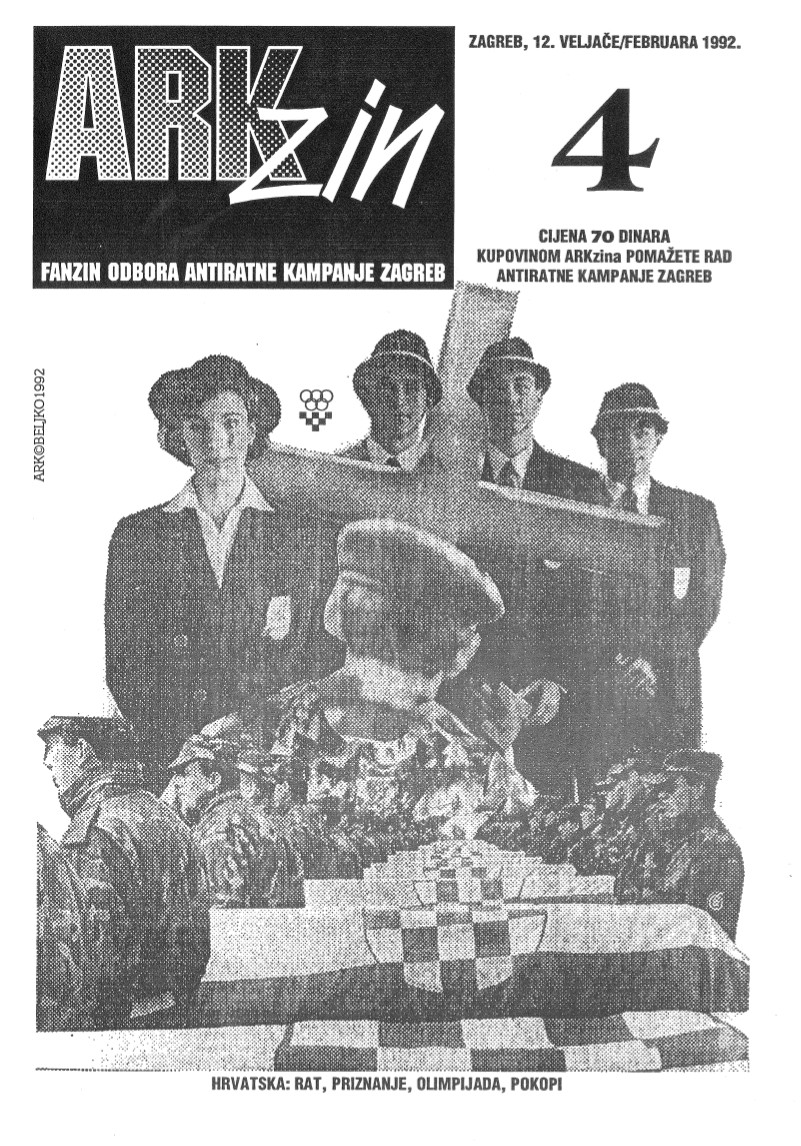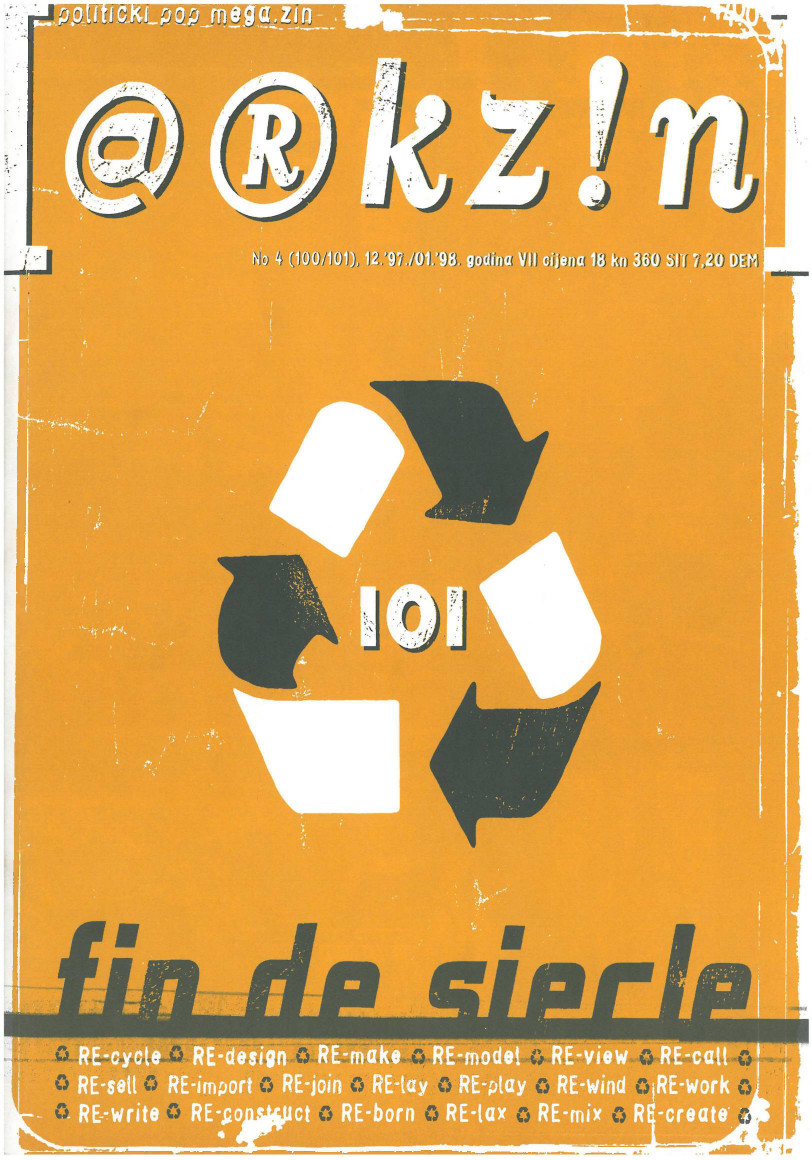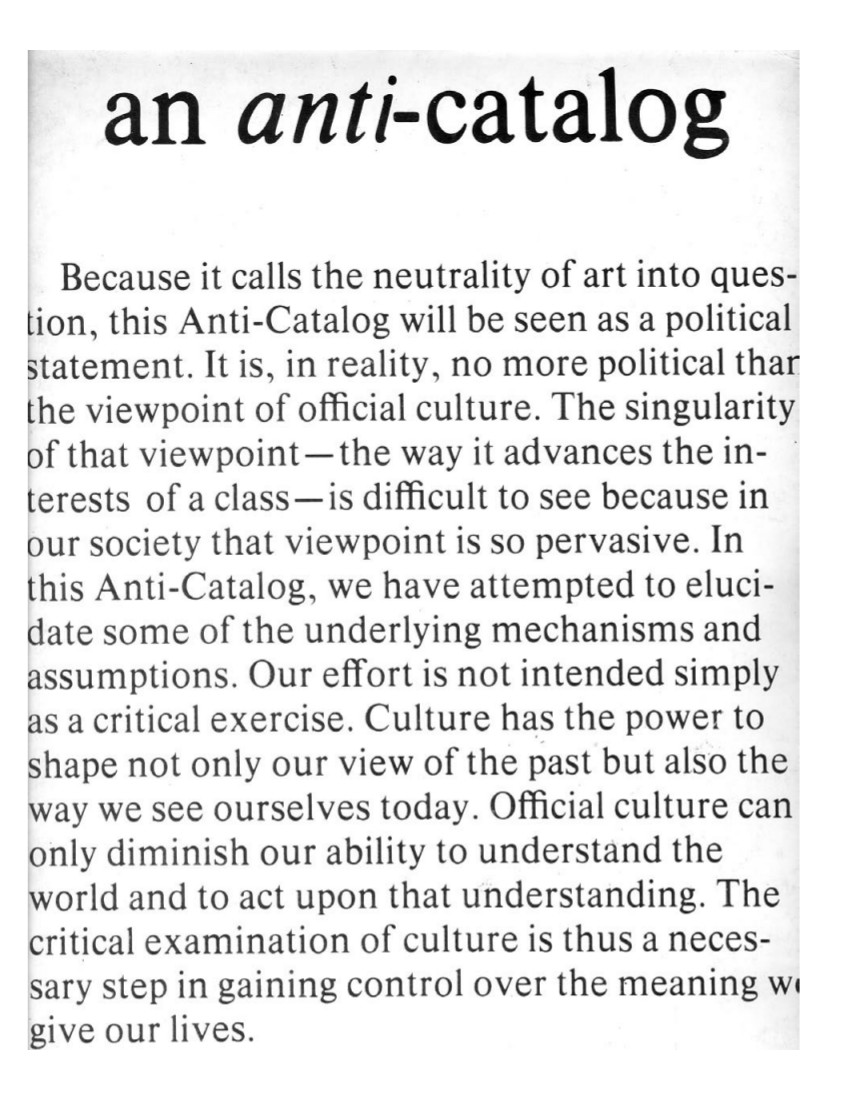Arkzin (1991–1998) [Croatian, English]
Filed under magazine | Tags: · activism, croatia, graphic design, media activism, political theory, politics, tactical media, theory, war, yugoslavia


Arkzin was a periodical published in Zagreb, Croatia, from 1991 to 1998. It began as a political fanzine and later on the editorial board widened the scope and included international members and topics. Arkzin gradually changed to a hybrid magazine in which politics, culture, theory and art met, crossed and overlapped.
In total, 106 issues appeared, including eight in English (between April 1993 and January 1994). Five issues of the periodical for critical writing Bastard were published as a supplement to the magazine.
The editors-in-chief of Arkzin were Vesna Janković (I/1-3, II/1-90), Miroslav Ambruš Kiš, Zoran Oštrić (I/1-3), Vladimir Desnica (I/5-6), and Dejan Kršić (II/91-93, III).
PDFs (Monoskop wiki, via MaMa & Human Rights Archive)
See also Prospects of Arkzin catalogue (48 pp, 2013)
Metahaven: Can Jokes Bring Down Governments? Memes, Design and Politics (2013)
Filed under pamphlet | Tags: · activism, design, fun, memes, politics, power

“These are serious times, or so our governments keep telling us. Strangling economies with their austerity policies, they assure us that they have no choice. In a world where “there is no alternative”, how do you dissent? Once upon a time, graphic designers would have made political posters and typeset manifestos. Today, protest has new strategies. Enter the internet meme. With its Darwinian survival skills and its viral potential, the meme is a way of scaling up protest. Hackers and activists have learned to unleash the destructive force of a Rick Astley video. They have let slip the Lolcats of war. Pranks have become a resistance strategy. As the rise of Beppe Grillo in Italy testifies, this may be the hour to fight nonsense with nonsense. Jokes are an open-source weapon of politics, and it is time to tap their power.”
Publisher Strelka Press, 2013
ISBN 9785906264077
Review (Shumi Bose, Blueprint)
Publisher
Authors (in an interview with Aaron Peters)
an anti-catalog (1977)
Filed under catalogue | Tags: · activism, art, politics

“An Anti-Catalog was the work of the Catalog Committee of the group Artists Meeting for Cultural Change (AMCC). A landmark publication of the 1970s, its purpose was to protest the Whitney Museum of American Art’s bicentennial exhibition, which was titled Three Centuries of American Art. The Whitney show featured John D. Rockefeller III’s collection of mainly eighteenth and nineteenth-century American art–a collection that featured only one African American and one woman artist.
The Catalog Committee, which consisted of fifteen artists and two art historians, spent almost a year producing an eighty-page book containing articles and documents. Originally conceived as a critique of art historian E.P. Richardson’s catalog for the Whitney exhibition, the committee evolved ideas for pictorial essays that would encompass native American art, African-American art, art by women, critiques of pervasive class bias in the art world, and critical examinations of cultural institutions. As the committee wrote in its description of its project, ‘we share the belief that culture should no longer exist merely as an extension of the economic interests or the personal ‘tastes’ of the wealthy and powerful. Nor can we hope to transform culture outside of a struggle to transform the society from which it springs.’ Strong words that have lost little of their relevance for today’s cultural scene.” (Alan Wallach)
Written, designed, and produced by Rudolf Baranik, Sarina Bromberg, Sarah Charlesworth, Susanne Cohn, Carol Duncan, Shawn Gargagliano, Eunice Golden, Janet Koenig, Joseph Kosuth, Anthony McCall, Paul Pechter, Elaine Bendock Pelosini, Aaron Roseman, Larry Rosing, Ann Marie Rousseau, Alan Wallach, Walter Weissman.
Publisher Artists Meeting for Cultural Change, New York, 1977
80 pages
via Dark Matter Archives, via Primary Information

